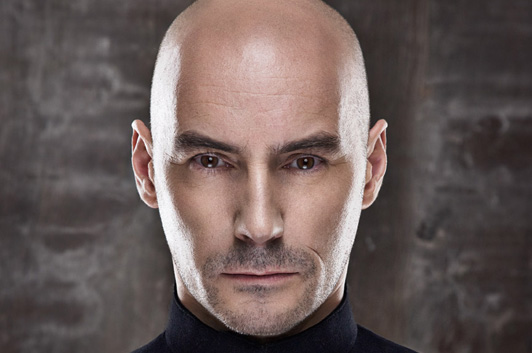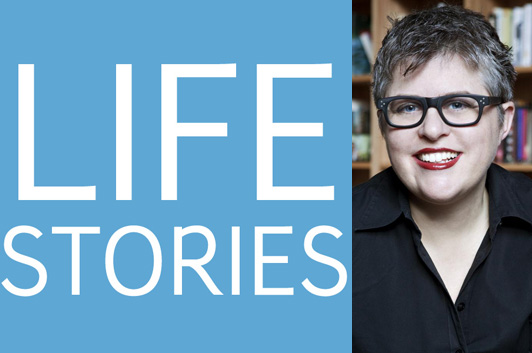MorrisonCon and the Author Ecosystem

photo: Allan Amato
I started seeing reports a while back about MorrisonCon, a weekend-long event that’ll be taking place in Las Vegas at the end of September 2012. For $699 (plus fees and tax), a thousand fans will enjoy a program curated by Grant Morrison, who’s written some of the top characters at both Marvel and DC—right now, for example, he’s working on both Superman and Batman—as well as Supergods, a dizzying combination of pop cultural history, autobiography, and far-out mysticism. He’s also, according to the folks at Ignition Sequence, “the perfect combination of social scientist and creative catalyst to help us re-envision everything that a comic convention could be.” What he’s come up with, they continue, is “[a] jam-packed schedule of unique panels, symposiums, one-on-one signing sessions and late-night mixers,” where attendees will get to spend quality time with Morrison and a select handful of writers and artists whose work he enjoys, like Walking Dead creator Robert Kirkman and My Chemical Romance lead singer Gerard Way.
Over at the LA Times blog Hero Complex, the imminent event is described as “a TED Conference with a dash of Nocturnal Wonderland, The Bowery Poetry Club and, um, maybe a pentagram.” Which sounds about right. It’s all out of my budget at the moment, but it could be quite the show—and, if it goes well, I think it’s a strong scenario for one likely future of author events.
In the publishing and bookselling worlds, there’s been a lot of talk over the last few years about how the traditional bookstore event—where an author shows up, reads from his or her latest book, takes a few questions from the audience, signs books for the fans, and heads back to the hotel—just isn’t cutting it anymore. A lot of folks have worked on developing alternatives, including my own efforts at curating an “author/blogger” series for Brooklyn’s >Greenlight Bookstore and my collaborative efforts in the Lady Jane’s Salon for romance novelists. MorrisonCon is a natural evolution of shows like Amanda Stern’s Happy Ending, which puts authors and musicians together on the same stage, with a bit of that TED conference vibe mixed in—or, as I said when I first heard about the event, the same impulse that drives aspiring screenwriters to spend a weekend with Robert McKee.
10 July 2012 | theory |
Life Stories #10: Cris Beam
In this installment of Life Stories, a Beatrice podcast series of interviews with memoirists about their lives and the art of memoir writing, I chat with Cris Beam, the author of Mother, Stranger, a long essay published digitally by The Atavist, which specializes in long-form narrative nonfiction. As such, some time in our conversation is spent talking about the technological innovations available to Beam in presenting her autobiographical story—from supplementary audio and video to a timeline which puts the events she writes about, after learning from a stranger about her mother’s death spurred her to revisit the memories of her childhood years, into a chronological order, allowing readers to absorb the material from another perspective.
But we also discuss things that all memoir writers have to face, such as telling the story of your relationships when the other people involved make it clear they don’t want to be included, how to communicate a memory or an experience when you don’t have the vocabulary to articulate what has happened, and the fact that finding the answers to questions about your past doesn’t always bring closure and healing…
Cris Beam is the author of Transparent, a journalistic portrait of the transgendered teens she worked with at a Los Angeles support center, and the YA novel I Am J. Her next book, Falls The Shadow: The Crisis of American Foster Care, will be published in 2013.
Listen to Life Stories #10: Cris Beam (MP3 file); or download the file by right-clicking (Mac users, option-click).
(On a technical note: This is my first “field recording” for Life Stories, in that we conducted the interview in the back corner of a downtown restaurant. I was quite pleased to learn, through trial and error, that the Audacity sound editing software was able to strip away the greater portion of the background noise, but you will still hear the occasional clang or other such noises—yet not so many, I hope, as to distract from Beam’s personal and professional revelations.)
9 July 2012 | life stories |


 Our Endless and Proper Work is my new book with Belt Publishing about starting (and sticking to) a productive writing practice.
Our Endless and Proper Work is my new book with Belt Publishing about starting (and sticking to) a productive writing practice. 
